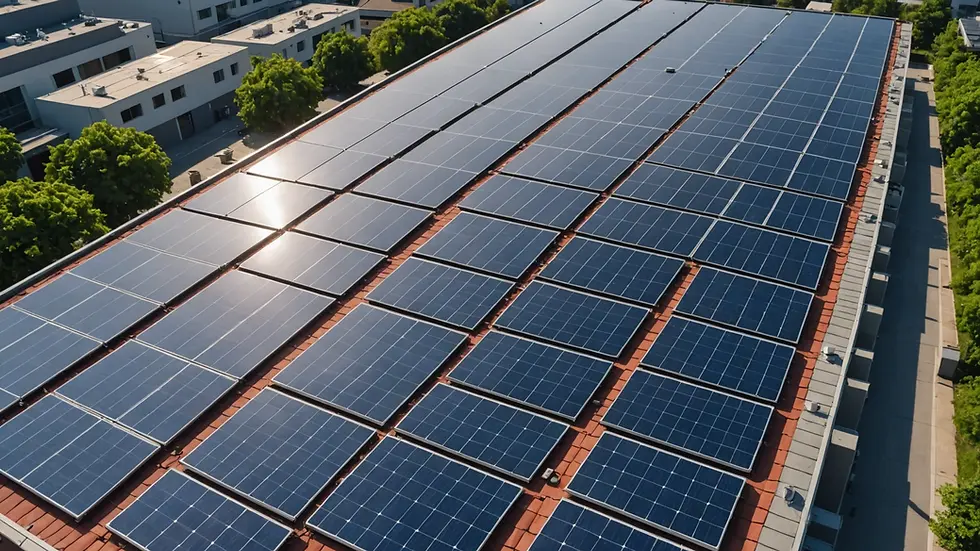Ready to Say Goodbye to Electric Bills? Here's Why You Should Make the Switch to Solar Energy
- NY Energy
- Feb 25, 2025
- 3 min read
Updated: Mar 10, 2025
Switching to solar energy is a popular topic today, and rightfully so. With energy costs rising and environmental issues pressing on our society, many families are looking for sustainable energy solutions. If you’re pondering whether to make the switch, here’s why adopting solar power could be one of the best moves you ever make.
The Rising Cost of Electricity
Electricity prices have been steadily increasing over the years. On average, residential electricity rates have jumped about 15% since 2010, averaging nearly 3% annual increases. If you are paying $100 monthly now, in just five years, that could rise to $115 or more.
By switching to solar energy, you can protect yourself from these escalating costs. Once invested in a solar energy system, you could power your home with free sunlight, potentially reducing your electric bill to zero. For example, homeowners who installed solar panels reported an average decrease of 50% in their monthly utility bills.
Environmental Impact
The environmental benefits of solar energy are significant. Traditional electricity generation using coal and natural gas results in high carbon emissions, releasing over 2 billion metric tons of CO2 into the atmosphere annually in the United States alone.
Conversely, solar energy generates electricity without harmful emissions. By installing solar panels, you can reduce your carbon footprint, contributing to a cleaner planet. A typical solar installation can prevent about 100 tons of carbon dioxide from entering the atmosphere over 25 years—the equivalent of planting over 2,500 trees!
Energy Independence
Switching to solar energy makes you less dependent on utility companies. With solar power, you generate your electricity, gaining control over your energy costs and usage.
Furthermore, many states offer incentives for adopting solar energy, such as tax credits or rebates. For example, the Federal Solar Investment Tax Credit (ITC) provides a 30% tax credit on the cost of installing a solar power system until the end of 2032, making it easier for homeowners to transition to solar energy.
Financial Incentives
There are considerable financial benefits to transitioning to solar energy. Government programs are designed to make solar installations more affordable. For instance, a homeowner in California can save up to $9,000 on a solar system purchase with available state rebates and incentives.
Utilizing the Federal ITC can result in savings that dramatically offset the upfront costs. So, if you spend $20,000 on a solar system, you could claim $6,000 back on your taxes, making the investment much more manageable.

Increase Home Value
Homes equipped with solar panels typically have higher property values. Studies show that homes with solar installations can sell for 4% more than comparable homes without solar.
This increased value can make your home more attractive to potential buyers. If you’re considering selling in the future, investing in solar energy could yield significant returns, transforming an upfront expense into a valuable asset.
Low Maintenance Costs
Solar systems require minimal maintenance. Most solar panels come with warranties spanning 20 to 25 years. They do not have moving parts prone to damage, which means fewer repairs over time.
Routine cleaning and annual inspections can keep everything functioning well. Many manufacturers also offer maintenance services, enhancing the ease of solar system upkeep for homeowners.
Technological Advancements
The solar energy field has advanced significantly. Modern solar panels are up to 22% more efficient than those made a decade ago. This means you can produce more energy from a smaller area.
Additionally, battery storage technology is becoming more widespread, allowing homeowners to capture excess power generated during sunny days for use at night. This further enhances the benefits of solar energy, providing greater efficiency and energy security.
Global Energy Trends
As global awareness of climate change increases, nations are investing heavily in renewable energy. By adopting solar energy, you are participating in a worldwide shift toward cleaner power.
Countries using solar energy have seen substantial growth. For instance, Germany generated over 40% of its electricity from renewables in 2020. By choosing solar, you're not just making a prudent choice for your home; you're also contributing to a larger, cleaner energy future.
Your Path to Energy Independence
As you consider the advantages of switching to solar energy, remember the long-term rewards: lower electric bills, reduced carbon emissions, increased property value, and the chance to invest in a sustainable future.
While the transition may seem daunting, many resources and incentives are available today, making it more accessible than ever. Say goodbye to unpredictable electric costs and welcome energy independence!
If you’re ready to explore your options, now is the ideal time to look into solar energy. Embrace solar power and help shape a brighter, greener future!





Comments